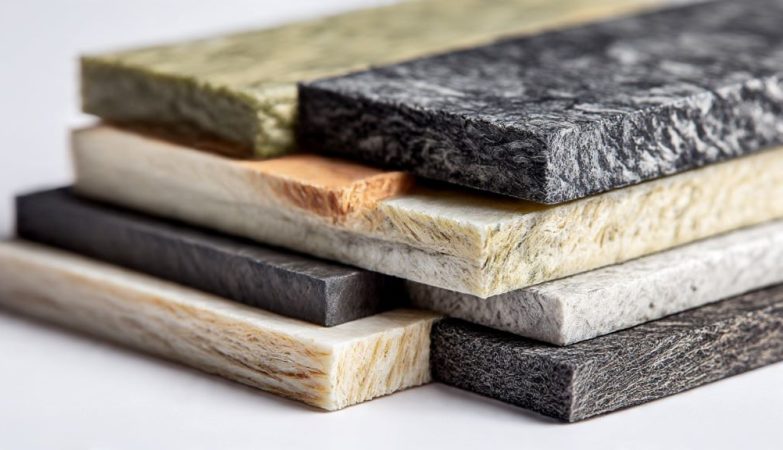The global wellness industry has surged past $5.6 trillion in value as of 2023, according to the Global Wellness Institute. As more people invest in self-care, the demand for spa and wellness centers continues to climb. For entrepreneurs and seasoned business owners alike, accessing proper financing is no longer optional—it’s strategic. This is where Spa & Wellness Facility Mortgages Financing for Health Businesses plays a critical role.
Why Specialized Financing Matters in Wellness Industries
Spa and wellness centers aren’t your average brick-and-mortar businesses. They involve complex infrastructure—hydrotherapy pools, relaxation suites, holistic treatment rooms—that demand significant upfront capital. Unlike generic commercial loans, Spa & Wellness Facility Mortgages are tailored to this niche. These financing solutions consider specific industry variables like licensing, practitioner credentials, and health regulations.
Traditional lenders often hesitate to back such ventures due to perceived risk and lack of industry understanding. However, alternative and specialty lenders see the long-term profitability and low default rates in wellness sectors. According to a 2024 report by IBISWorld, wellness centers enjoy consistent year-over-year growth, even during economic downturns.
Key Benefits of Spa & Wellness Facility Mortgages
A targeted financing approach brings several game-changing advantages:
- Customized Loan Structures: These loans cater to seasonal cash flow, allowing flexible repayments during slow months.
- Higher Approval Rates: Lenders familiar with the industry are more likely to approve applications.
- Access to Equipment Financing: You can wrap costly spa tech, like cryotherapy machines or infrared saunas, into the mortgage.
Additionally, many lenders now offer hybrid packages combining real estate loans with business working capital. This dual-purpose funding improves liquidity and operational resilience.
Types of Financing Available
Navigating funding options can feel overwhelming. However, understanding the primary types simplifies decision-making.
- Commercial Mortgages for Wellness Facilities:
Designed for owners purchasing land or a building. These loans offer competitive rates if backed by real estate equity. - SBA Loans (Small Business Administration):
Ideal for newer businesses. SBA 7(a) and CDC/504 loans offer long repayment terms and lower interest rates. The SBA has increased its support for health-related startups since 2022, as reported by Forbes. - Equipment Financing:
Spa owners can finance treatment chairs, steam rooms, and diagnostic tools separately. This conserves working capital. - Bridge Loans:
Useful for fast expansion or renovation projects. Though short-term, they offer quick cash injection to capitalize on timely opportunities. - Business Line of Credit:
Offers revolving capital to manage payroll, marketing, or inventory, especially during off-peak seasons.
Choosing the right blend of these options depends on your growth stage, revenue projections, and asset ownership.
Real-World Success: Case Study
Take the example of Solace Spa & Wellness in San Diego. Launched in 2020 with a modest footprint, the owner secured an SBA 504 loan and used an equipment line to invest in high-end hydrotherapy features. Within three years, they expanded into a second location. Their revenue jumped by 60%, fueled by strategic financing and industry-specific support.
Such stories aren’t isolated. Across the U.S., spa businesses using specialized financing report faster ROI and greater scalability than those with traditional loans.
Challenges and How to Overcome Them
Despite the promise, securing a Spa & Wellness Facility Mortgage comes with hurdles:
- Low Credit Scores: Many startup owners have limited credit history.
- Lack of Industry Experience: Some lenders hesitate if owners lack a track record.
- Zoning and Permits: Municipal red tape can delay construction or expansion.
However, partnering with consultants or brokers who specialize in wellness lending can mitigate these challenges. Additionally, maintaining thorough business plans with accurate forecasts significantly increases lender confidence.
How to Qualify for Spa & Wellness Facility Mortgages

Preparation is vital. Here’s what most lenders will require:
- Detailed Business Plan with market analysis and revenue projections
- Credit Report (both business and personal)
- Financial Statements for at least two years
- Proof of Licenses and Certifications
- Location Appraisal and zoning clearance
Maintaining transparent documentation and having a CPA-reviewed financial package speeds up approvals.
Expert Opinions and Industry Insights
According to NACLB (National Association of Commercial Loan Brokers), over 70% of niche businesses that apply for industry-specific mortgages experience faster approvals. Furthermore, The Financial Brand suggests that non-bank lenders, such as fintech firms, are disrupting the space with more inclusive, tech-driven evaluations.
Bankers from institutions like Wells Fargo and Chase have also indicated rising interest in health-focused businesses, citing consistent demand and loyal clientele as stability indicators.
However, not all experts agree. Some argue that over-leveraging in a competitive market can hurt businesses in downturns. While that’s valid, strategic borrowing with contingency planning offsets this risk.
Most Asked Questions (FAQs)
- What credit score is needed for a wellness facility mortgage?
Most lenders prefer a score above 680, but some alternative lenders accept lower with strong financials. - Can I use a spa mortgage for renovations?
Yes, many mortgage packages allow partial funding for remodeling and equipment upgrades. - Do I need collateral for these loans?
Typically, the facility or land serves as collateral. In some cases, equipment can also secure the loan. - How long is the typical repayment period?
It ranges from 10 to 25 years, depending on the loan type and down payment. - Is it better to lease or buy spa equipment?
Leasing is more flexible short-term. Buying through equipment financing builds equity and long-term savings. - Are SBA loans difficult to qualify for?
They can be paperwork-heavy, but offer unmatched terms. Partnering with an SBA-approved lender simplifies the process. - How fast can I get funded?
Equipment loans may close in a week. Full mortgages often take 30–60 days, depending on documentation and approvals.
Final Thought
Spa & wellness facility mortgages financing for health businesses isn’t just about securing funds—it’s about building sustainable health empires. With the wellness economy expected to exceed $7 trillion by 2025, seizing the right financing options now could define your success trajectory. Aligning with industry-savvy lenders and staying financially agile will give you a distinct competitive edge.
Business growth in the wellness space demands more than ambition—it requires strategy, precision, and the right financial backing. Whether you’re opening your first spa or scaling your holistic empire, specialized financing is the key to unlocking full potential.
Read More:




